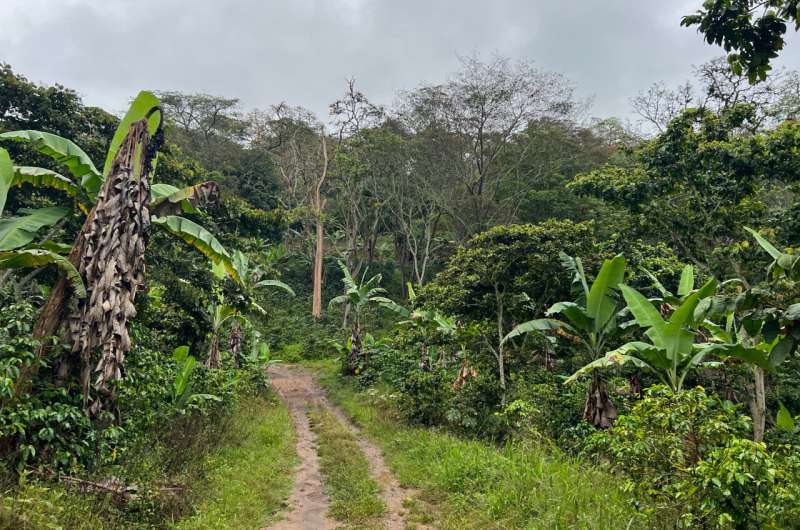This article has been reviewed according to Science X's editorial process and policies. Editors have highlighted the following attributes while ensuring the content's credibility:
fact-checked
peer-reviewed publication
proofread
New research shows agricultural impacts on soil microbiome and fungal communities

New research from Smithsonian's Bird Friendly Coffee program highlights a type of biodiversity that often gets overlooked: soil bacteria and fungal communities. For over twenty years, Smithsonian research has shown that coffee farms with shade trees protect more biodiversity than intensified, monoculture coffee farms.
The new research, published in Applied Soil Ecology, shows that soil bacteria and fungi on coffee farms also respond to the intensity of coffee farm management.
To conduct this research, the team collected soil samples on coffee farms in Colombia, El Salvador, and Peru and used DNA analysis to profile bacterial and fungal soil on farms with different management regimes. They found that farming coffee as a monoculture alters the soil microbiome in both community composition and species diversity. But not all shade-grown coffee farms were the same.
The soil microbiomes on farms with native shade trees were different than on farms with non-native, introduced species of shade trees as well. Soil microbiomes in the tropics are poorly understood, and this research demonstrates the incredible diversity within soils in tropical agricultural landscapes across Latin America.
This research also furthers our understanding of how coffee farm management decisions impact that entire agricultural ecosystem, which in turn impacts the production of coffee and the livelihoods that depend on it. As biodiversity is declining globally at an alarming rate, agricultural landscapes can play an important role in conserving unique species and ecological processes that enable agriculture to thrive.
More information: Steve Kutos et al, Farm management and shade tree species influence coffee soil microbiomes in Central and South America, Applied Soil Ecology (2024). DOI: 10.1016/j.apsoil.2024.105571
Journal information: Applied Soil Ecology
Provided by Smithsonian National Zoological Park





















